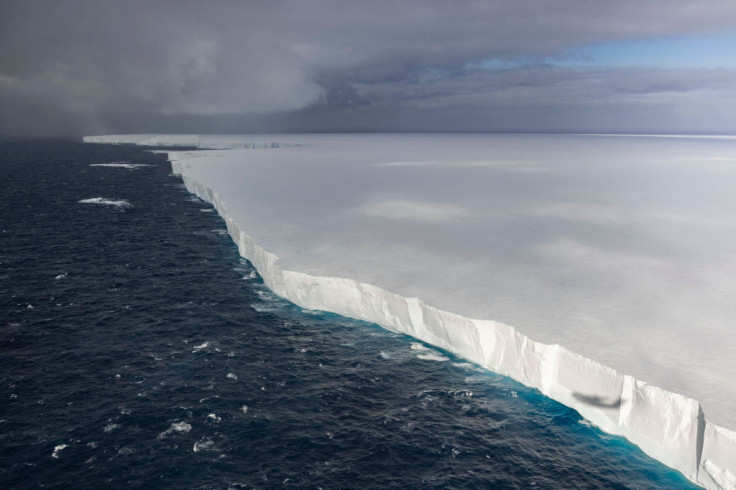
An iceberg the size of Rhode Island with a Game of Thrones-like ice wall is heading toward an island off Antarctica that is teeming with penguins and seals, the Associated Press reported.
The trillion-ton chunk of ice, known as a megaberg, is making a beeline to South Georgia Island in the South Atlantic Ocean where it could get stuck in shallow waters or be exposed to currents.
If the iceberg - the world's biggest at nearly 1,500 square miles - becomes stranded near the remote British island, it could make it difficult for penguins to feed their babies, meaning some could starve, the Associated Press reported.
But the iceberg, dubbed A23a, is unlikely to suffer much damage.
"The iceberg itself is colossal and it stretches from horizon to horizon," British Antarctic Survey physical oceanographer Andrew Meijers told the wire service.
"It's a huge wall, a Game of Thrones style wall of ice that towers above the ship. With some waves breaking against it and if you get a bit of sunshine coming through, it's really dramatic," he said.
Meijers got up close and personal with A23a in December 2023 when it drifted by the research ship RRS Sir David Attenborough.
Traveling at a glacier-like pace of less than one mile an hour, the iceberg could reach the island in about four weeks, Meijers said.
When it arrives, A23a could become lodged in shallow water or float on by.
"Large icebergs bump into the shoals around South Georgia more or less every year — it's a kind of highway for the major icebergs," University of Colorado ice scientist Ted Scambos told the AP in an email.
Meijers said the concern is for the penguins, which are in their summer breeding cycle.
"South Georgia is an amazingly ecologically rich island. It's a breeding ground for a huge number of penguins, millions of penguins and seals," he said. "There's lots of pups and chicks and they're all still dependent on their parents."
Adult penguins travel far out into the water to forage for food.
But icebergs can block their search for food, causing them to swim farther, depleting their energy, and forcing them to bring back less food.
That "unfortunately can dramatically increase mortality rates. And it has happened in the past," Meijers said.







